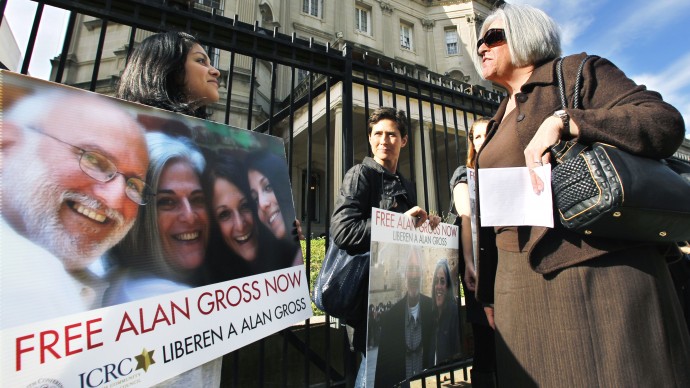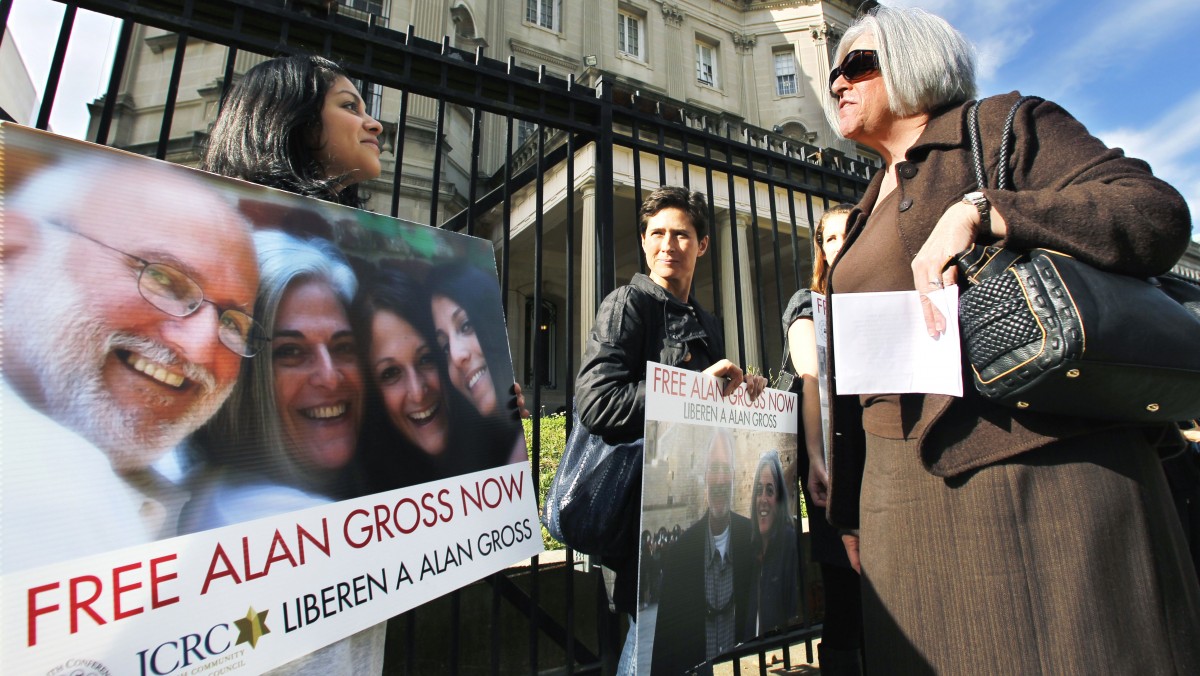
(Mint Press)– On Thursday, a CNN interview on Wolf Blitzer’s program, The Situation Room, offered a rare opportunity to advance talks on the release of Alan Gross, an American contractor working for the U.S. Agency for International Development (USAID) who was detained in Cuba in 2006 on charges of plotting against the state.
Speaking to Blitzer via satellite phone, Josephina Vidal, a top Foreign Ministry Official, said that Cuba was willing to talk with the U.S., but would not put forth any specific formula for negotiations.
A benevolent mission?
Gross, who was on the island of Cuba to extend internet access to the island’s small Jewish community, has been held as a prisoner after authorities found he was carrying suspicious items on his person. While his primary mission was to extend internet access, Gross was also carrying several laptops, smartphones and hard drives. Calling him a “spy seeking to undermine the independence and integrity of Cuba”, Raul Castro doubted that Gross’ mission was a benign one. He was sentenced to 15 years in prison.
Despite not having formal diplomatic ties with Cuba, the U.S. has continued USAID work in areas of democracy promotion and economic liberalization. Gross was detained during his sixth trip to Cuba despite having all his work sanctioned by USAID and the Cuban government. While it is still unclear as to whether Gross was conducting any covert operations, his release could be a small but important step toward easing U.S.-Cuban hostilities.
U.S. elections, a hindrance to negotiations
Media speculation has advanced the belief that the U.S. may be willing to negotiate a prisoner swap for “the Cuban five,” a group of Cuban Intelligence officers convicted of espionage against the U.S. in 2001. However, upcoming U.S. presidential elections make it unlikely that there will be any significant movement on this issue until after November.
Dr. Andy Gomez, an expert on U.S.-Cuban relations at the University Miami, is among those who are skeptical, saying that he would be very surprised to see any serious negotiations on the issue given President Obama’s difficult reelection bid. The small, but influential Cuban American constituency has historically voted as a conservative bloc.
This is attributed to the failed Bay of Pigs invasion, when many Cuban Americans become distrustful of the Democratic party and its foreign policy. The rightward shift in the Cuban American voting record continued through recent elections with George W. Bush winning almost 80 percent of the Cuban-American vote in the 2000 presidential election.
However, younger Cuban Americans tend to be more liberal than their predecessors, giving President Obama a chance to pick up key votes in his bid for reelection. Much of the community living in the U.S. still remains opposed to dealing with the Castro regime because of its unwillingness to liberalize the economy and the political system.
The opinions of Cuban-American exiles generally stands in contrast to broader U.S. popular opinion regarding the embargo and the suspension of political ties. According to the Washington-based Center for American Progress, nearly 60 percent of Americans believe it is time to try a new approach towards Cuba because the regime may be willing to change.
According to the same study, there was an even more positive opinion of President Obama’s decision to relax travel restrictions for Cuban Americans who want to visit relatives on the island, with 79 percent approving of the decision.
Although full normalization is unlikely to occur for some time, Professor Gomez believes that the cat and mouse game of negotiations for political prisoners could be a way for Washington to engage Havana. The “temperature check” will allow leaders to better understand where Cuba stands vis-a-vis democratization and regime change.
The facade of warming U.S.-Cuban relations
The U.S. and Cuba have had a tenuous relationship since the 1959 popular revolution that ousted Dictator Fulgencio Bautista. After seizing and nationalizing American industries, the U.S. reduced sugar import quotas as a punitive, retaliatory measure. The Soviet Union agreed to begin importing the balance of Cuban-produced sugar to make up for the loss of revenue. Although Cuba briefly remained non-aligned following their popular revolution, establishing economic ties with the Soviet Union quickly stymied any possibility of a warm U.S.-Cuban relationship.
The economic embargo that ensued has left Cuba’s 11 million citizens isolated, with few of the amenities available in the West. Alan Gross was in Cuba for the stated purpose of extending Internet access to communities that did not have use of this technology. This outreach was part of more moderate policies of cautious engagement with the Cuban regime.
In January 2011, the Obama administration eased travel restrictions for Americans traveling to Cuba with sanctioned religious, cultural and academic programs. The move is supposed to build cross-national ties through people-to-people interactions while helping to stimulate the economy of the embargoed state.
While relations have remained essentially non-existent under different U.S. presidents, these small but important steps by Barack Obama have given some hope that the two nations will one day end hostilities and establish normal diplomatic relations.
Efforts by world figures to push the two countries toward negotiations have been largely unsuccessful, as the Cuban government frequently cites American policies as a bar to further engagement.
Cuban intransigence
In a March 2012 visit to Cuba, Pope Benedict XVI welcomed the emerging private sector while urging Cuban leadership to adopt broader political changes, namely a citizen led democracy. The Pope was quickly rebuffed by the Castro administration, indicating an unwillingness to liberalize given continued problems with the U.S.
One major issue, aside from the problematic economic embargo is the unpopular Guantanamo Bay prison. The 1903 Cuban-American treaty has allowed the U.S. to maintain de-facto control over the territory. The current Cuban administration has called America’s presence “illegal” and said that the treaty was signed under threat of force, a clear violation of international law. Raul Castro has asked the Americans to leave. However, the treaty can only be terminated officially if both countries agree to these terms.
In 2002, America opened the Guantanamo Bay prison to hold detainees from wars in Iraq in Afghanistan. The prisoners have been held under administrative detention without charge and without due process rights to a trial.
Human rights groups have called for the prison to be closed, citing numerous U.S. allegations of torture and misconduct. President Obama promised to close the prison shortly after taking office in 2008, but has only succeeded in reducing the prisoner population through transfers. Today, 171 prisoners remain, according to the American Civil Liberties Union (ACLU).
This issue, among others, remains one of the biggest sources of friction for the two nations. However, Gross’ release would be timely, and could go a long way in easing hostilities.


